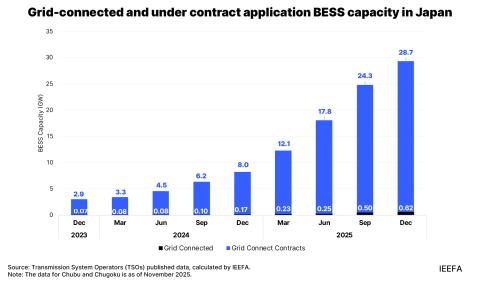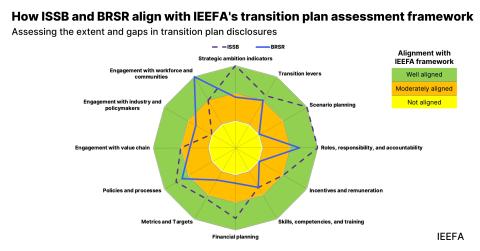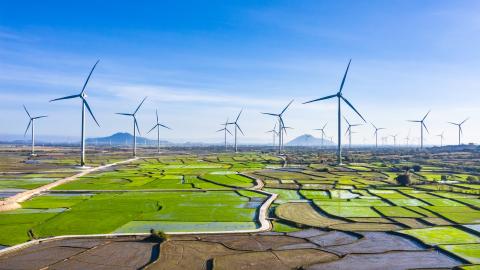Two economies collide: Competition, conflict, and the financial case for fossil fuel divestment
Download Full Report
View Press Release

Key Findings
Despite recent global developments, the case for fossil fuel divestment is still strong. Sustainable economics are proving their financial reliability and long-term ability as a sound investment.
The fossil fuel industry faces long-term headwinds from unprecedented global competition across all major end-markets. The fossil fuel sector is also significant legal, regulatory, and market risk, making long-term investments undesirable.
Climate change is increasingly acknowledged and seen as a financial risk –this fact in addition to global competition should have institutional investors questioning the need to invest in fossil fuels at all.
As the energy market continues to become more intertwined at the same time we’re seeing the impacts of climate change, divestment will only continue to gain ground.
Executive Summary
The coal, oil and gas sectors have lost their financial rationale.
Competitive forces inside and outside the industry have undermined this once-mighty economic force. Politics now drives oil and gas prices, with the war in Ukraine serving as a vivid reminder of this stark reality. Market forces now favor fossil fuel competitors; cost efficiencies, innovation and public opinion are converging to move trillions of dollars to sustainable alternatives. Meanwhile, an increasing number of destructive weather events have underscored the destruction caused by climate change and increased public demands for solutions.
Investors should move away from fossil fuels because the coal, oil and gas sectors are confronted with competitive pressures that they are ill-prepared to navigate.
Competitors are mapping a sustainable way forward. From 2010 through the COVID-19 pandemic that began in early 2020, the energy sector faltered—lagging the Standard & Poor’s 500-stock index in eight of those years and placing last of all sectors in five. Those years witnessed structural changes in the oil and gas sector. Fracking in the United States dramatically increased the world’s oil and gas supply, driving down prices and exposing an obsolete oil and gas business model. Worldwide competition across the oil and gas industry’s traditional markets in power, transportation and petrochemicals have taken market share. The outlook is for more of the same. The oil and gas sector’s promised technological innovations, such as carbon capture and sequestration (CCS) technology, remain unproven, unreliable and unprofitable.
From a structural standpoint, two economies are emerging—one based on fossil fuels and one based on sustainability—that cooperate and conflict but ultimately integrate into one fragile, changing energy system. Sustainable economics is proving its mettle with innovations, profits, and new capital infusions that alternately compete and cooperate with a declining fossil fuel sector across the power, transportation, and petrochemical sectors.
Faced with this new robust competition, the strategies and tactics of the fossil fuel sector are now largely political, since the industry has lost its financial rationale. As coronavirus vaccines and public health initiatives allowed the world economy to emerge from the COVID-19 pandemic, supply and demand imbalances increased oil and gas prices. Then, Russia’s invasion of Ukraine—a consummate display of raw political power—triggered a series of market bottlenecks that drove prices soaring. It also created an energy distribution network driven by support or opposition to Russia’s goals of aggression. The results have been significant revenue increases for all oil and gas producers, including state-owned enterprises and private oil concerns. The high prices have contributed to worldwide inflation, placing extraordinary pressure on developing countries with growing economies.
Death and destruction are at the root of rising revenues. ExxonMobil, for example, saw its revenues during the 2010s drop to the low-$200 billion level after hitting more than $400 billion consecutively for several years. With the Ukrainian invasion, its revenues are back up and may reach $400 billion this year.
Another factor in the energy scenario that has become amplified over the last five years involves the destructive impacts of climate change. The size and scope of floods, hurricanes, tsunamis, droughts, heatwaves, and wildfires are increasing. Large areas of the planet are being battered by destructive climate events. The violence of these natural events is the subject of often-violent disagreements over what to do about climate change.
While the impact of climate change is societal, the argument for divestment is also financial. Weak economic performance and an unstable future for fossil fuels have made it clear that divestment can be achieved without financial harm to any individual investment fund. Divestment is a defensive tool employed to protect investors from the loss of value—losses as certain as climate change’s global reach.
This report addresses the many arguments against fossil fuel divestment and updates a 2018 IEEFA report. The opponents of divestment made a simple case that divestment would lose money. It was not true then, and is less true now as hundreds of funds adopting various paths of divestment have maintained their investment targets. Yet that argument persists, and new arguments are increasingly political. Opponents argue that divestment is just part of today’s divisive, all-or-nothing political culture. Skeptics express concern that divestment will undermine potential solutions to climate change and that better solutions exist. Beyond the corporate bottom lines, opponents of divestment point to unintended generalized economic imbalances that may result in higher energy prices. Many of these arguments raise important policy considerations but are beside the point. Climate risk is a financial risk. When a fiduciary acknowledges a risk, they are obligated to take action.
Many investment funds are unwilling to consider life with a fossil-free portfolio. They prefer to dismiss divestment based on an unfounded fear of financial loss and a willingness to embrace unproven solutions from the fossil fuel industry, grasping for a past that cannot return. This is a significant fiduciary lapse. At this stage of its evolution, climate change and the current market responses to it require sober consideration of a fully divested portfolio. Fiduciaries can opt for different investment strategies to address climate risk, but without a plan that fully articulates a fossil-free portfolio, those strategies are devoid of a sound fiduciary basis for investment decision-making.
Today, we are told that the oil and gas industry is on its way back. The last few quarters have left the industry flush with cash; stock prices are rising and management is said to have finally learned the secret of capital discipline. Yet despite the political crisis that led to the recent price spikes, the market fundamentals for oil and gas remain weak. No one can say how the Ukrainian conflict will end or predict the political re-alignments that will occur in its wake. For investors seeking a steady, stable investment, fossil fuels are an unreliable option. They offer volatility, spurious innovations and political calamity. In this sense, divestment is a defensive strategy designed to compel innovation in cleaner alternatives across the power, transportation and petrochemical sectors. Divestment has the potential to be a key ingredient for an emerging, sustainable and profitable economic order.

















